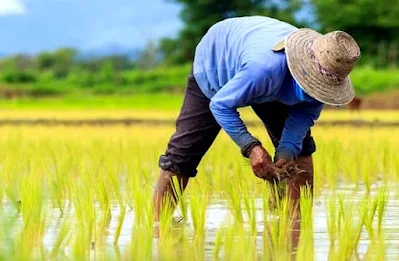Farmers are important in society because they are responsible for producing the food and crops that sustain human life. They work hard to cultivate and care for crops, raise livestock, and manage the land. Without farmers, the world's food supply would be severely compromised, leading to widespread hunger and malnutrition in society.
Additionally, farming plays a vital role in the economy by providing jobs and income for farmers and those who work in related industries, such as food processing and distribution. Farmers also help to protect the environment by implementing sustainable farming practices and preserving open spaces and wildlife habitats. Overall, farmers play a crucial role in ensuring the health, well-being, and sustainability of our society. Here are more than 10 points to consider the importance of farmers.
- Farmers are essential to rural communities and economies, as they often provide a significant portion of the employment and income in these areas.
- They also help to preserve traditional agricultural practices and knowledge, which can be important for cultural and historical reasons. $ads={1}
- Many farmers are also involved in research and innovation to improve crop yields, develop new technologies, and address environmental challenges.
- Agriculture is a vital sector in global trade, and farmers play a critical role in producing the goods that are traded and exported between countries.
- Farmers can be at the forefront of addressing some of the biggest challenges facing the world today, such as climate change and food security, by adopting sustainable and innovative practices.
- Farmers provide a sense of security and stability in times of crisis, such as natural disasters or pandemics, by ensuring that the food supply remains stable and reliable.
- Farmers are often the stewards of our natural resources and are responsible for sustainably managing the land. They have a critical role to play in protecting our soil, water, and air quality, and in preserving biodiversity and wildlife habitats.
- Small-scale farmers in developing countries are particularly important, as they often grow food for their own families and communities, and can be key players in reducing poverty and hunger.
- In addition to producing food, farmers also grow crops that are used for a wide range of other products, such as fuel, textiles, and medicine in the farming industry.
- Many farmers are also involved in providing ecosystem services, such as carbon sequestration and water filtration, which can have positive impacts on the environment and society.
- Farming is often a family tradition, with skills and knowledge passed down from generation to generation. This helps to maintain a strong sense of community and cultural heritage in rural areas.
- Farmers are often at the forefront of responding to and adapting to changes in the food and agriculture industry, including new technologies, changing consumer preferences, and global market shifts.
- Farmers can also play an important role in shaping public policy and advocating for the needs of their communities. Through organizations and associations, they can voice their concerns and opinions on issues that affect their livelihoods and the future of agriculture.
- Many farmers also contribute to their local economies by selling their products at farmer's markets or through direct-to-consumer sales. This can help to build stronger relationships between farmers and consumers and can promote a greater understanding of the value of locally grown food.
- In some cases, farmers can also act as educators, teaching others about the importance of agriculture and the challenges that farmers face. This can help to build a greater appreciation for the hard work and dedication that goes into producing the food we eat.
- Farmers can be a source of inspiration and innovation, as they develop new techniques and practices to improve their yields and protect the environment. They can be leaders in the movement towards more sustainable, responsible, and equitable agriculture, and can help to build a brighter future for all of us.
- Farmers play a critical role in ensuring food security, which is the availability and access to safe, nutritious, and culturally appropriate food. With the world's population projected to reach 9.7 billion by 2050, the demand for food will continue to increase, and farmers will be needed to meet this demand.
- Many farmers are also involved in the conservation and preservation of heirloom or heritage varieties of crops and livestock breeds. This can help to maintain genetic diversity and protect against the loss of traditional knowledge and cultural heritage.
- In addition to their contribution to the food system, farmers can also have a positive impact on the mental health and well-being of individuals and communities. Farming can provide a sense of purpose and fulfillment, and the opportunity to connect with nature and the land.
- Farming can also be a way to build resilience and adaptability in the face of challenges such as climate change, extreme weather events, and economic volatility. By diversifying crops, using sustainable practices, and implementing innovative technologies, farmers can help to mitigate risks and build a more sustainable and resilient food system.
- Farmers are often deeply connected to their communities and can be a source of cultural identity and pride. By supporting local farmers, we can help to build stronger, more resilient communities that are better equipped to face the challenges of the future.
In conclusion, farmers are vital to society as they provide the essential resources necessary for survival. They contribute to the economy, support rural communities, and help to maintain biodiversity and a sustainable environment. Now, you can write an essay on the importance of farmers and their rights and you can also prepare why farmers are important speech very easily. Farmer's hard work and dedication are critical to the well-being of society, and they must be recognized and supported in their efforts to feed the world.

